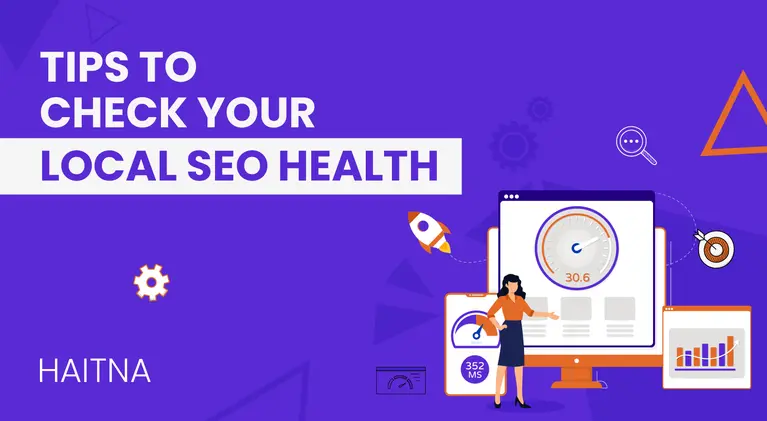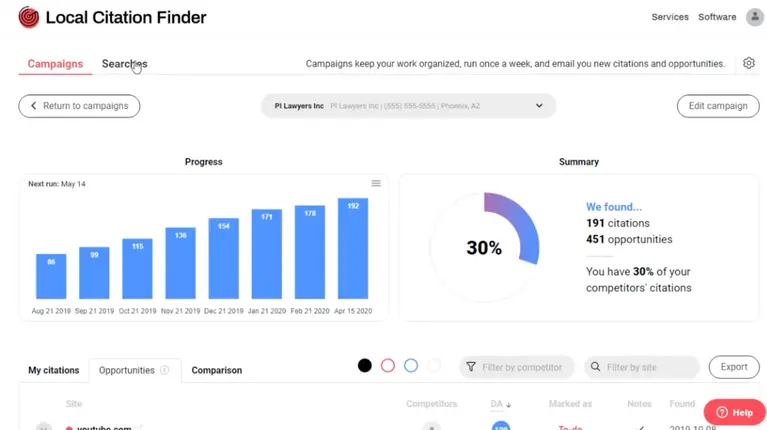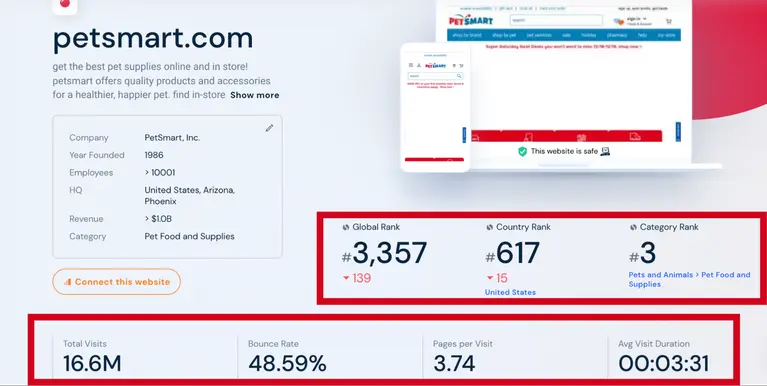
8 Simple Ways To Check Your Local SEO Health
So, you have established your brand and put together a basic Local SEO strategy?
Chances are you have a physical location and are targeting several local markets.
How do you ensure your site turns up in search results for user queries centered on the location or locations you are serving? How will your Local SEO convert into more real estate on search engine result pages (SERPs)?
Most importantly, how do you claim a spot in Google’s Local SEO 3-pack and maps ranking for the particular geographic area?
Here Are Eight Questions You Should Answer To Get The Best ROI On Your Local SEO Efforts.
1. Have You Hyper-Localized Your Brand And Content?
Whether you’re a business with one location or many, you should do this. If you’re building a presence and focusing on one location (at least, to begin with), ensure your brand’s SEO is primed to drive your presence in that particular market.
There's no way around hyper-localization if you are a business with more than one location. This would mean a number of things, from including each of your locations in your brand name (optional) to developing a separate page on your site for individual stores (a must).
The process begins with researching your location area and reflecting this know-how in your on-site content. This would help you turn up for very specific local searches.
- Sign up on Google My Business and claim your business profile. Update it with your location information (including map pin), opening and closing times, events, and other location-specific attributes.
- Decide your hyper-local terms (well-known streets, universities, buildings, etc.) based on the neighborhood. Then, seed these in your page titles, descriptions, copy, image alt text, and other web page attributes.
- Use local business schema or structured markups to help Google and other search engine crawlers zone in your location-focused content. Free SEO tools like Merkle and Hall Analysis can help you here.
- Use tools like LocalFalcon to get insights and analytics to gauge the strength of your hyper-local visibility.
Have a look at how LocalFalcon helps you monitor, track, and improve your hyper-local brand visibility

2. Have You Done Your Local Keyword Research?
With Google’s local-first or proximity-based approach (i.e., results physically closest to the user/search query), local businesses, like a repair service or florist, can more easily rank for competitive local-intent queries.
The key is to have your brand and listings reflect the local market or location you’re in, starting with complete keyword research. It would essentially entail determining the various categories of words and phrases to help you target local search queries.
Think like your target audience and modify your keywords based on their possible search intents—the result: more organic traffic and higher SERP rankings.
- Leverage industry-specific keywords. For instance, if you offer an automobile repairs service, identify keywords and phrases that users might add to their ‘near me’ queries, e.g., ‘tires and wheels repair,’ ‘car detailing,’ ‘AC service,’ etc.
- Frame keywords based on the area in which your TA lives or works. For example, a user would typically search ‘best car detailing in Fresno.’
- Apart from Google Keywords Planner, you should try research tools like SEMrush (more expensive) and Soovle (completely free) to help Local SEO narrow geographic areas.
Here’s a screenshot from Soovle showing related keywords for the local search term “pet store in Chicago” from various search platforms like Google, YouTube, Yahoo, etc

Read: 15 Best Keyword Research Tools Used By Top SEO Companies
3. Have You Optimized Your Site Structure?
An essential element of maintaining your Local SEO success is optimizing your business site. After all, it is what gets you visibility and higher traffic and, thereby, increased visibility and top rankings.
Begin with your home page, as it’s the first impression for visitors. Make sure it properly describes who you are, what you do, and where you are.
Apart from local keywords and local business schema, you must also pay attention to the larger content strategy. Keep populating local content, whether it’s about your services or what’s happening in your store’s neighborhood.
Blogs and videos on local events and charities you support will be particularly effective in drumming up noise and numbers for Local SEO.
- Ensure optimized site categorization to meet more local queries. Create different pages for the various services or products you offer.
- Create NAP (Name-Address-Phone) citations for each location you serve and update them regularly on your pages.
- Your metadata should align with the information you’re encapsulating on your home page. The page title tags and meta description should include the name of the city/town your local business is focusing on and your product or service.
4. Are You Getting Featured In Local Content?
Ensure you’re getting local coverage to claim more backlinks and get more visibility. To start is, local blogs related to your industry, target audience, or both. You can write guest posts or simply have your business mentioned with a direct link.
To boost your Local SEO most efficiently, pick blogs associated with a particular neighborhood or region. These are properly indexed by search engines and will direct more search traffic your way.
What’s more, Google considers a high number of backlinks as a trust and relevancy signal and will ultimately rank your site higher.
- Local site coverage would also include mentions in local directories and target citations in industry-specific directories. CitationFinder can help you target citations in a choice of directories and streamline duplicate listings.
- Periodically check the health of your backlinks. Broken links will always affect the user experience and search engine crawlability and nullify Local SEO efforts. So, reclaim any broken links or unlinked mentions.
- Tools like Majestic and the Free Backlink checker from SEO Review Tools can help fix broken backlinks on other sites.
You can use WhiteSpark’s local citation finder to track, update, and optimize all your local business listings.

5. Are You Engaging Customers, Including For Reviews?
A local business cannot thrive without patronage, particularly given competition. When it comes to Local SEO, you will have to ensure the satisfaction of your target market by leveraging online tools.
Besides serving content that engages and informs your target market, you also have to seek, track, and respond to reviews. This is important as research shows that buyers base a significant part of their purchasing decision on what others say about a brand.
Remember, no business is entirely immune to negative feedback. So, you’ll have to learn how to respond to and convert them.
- Identify the most common review sites where customers rate businesses. Engage customers with both positive and negative feedback to manage your ratings.
- Add social proof to your website. This would include user testimonials, expert opinions, and influencer reviews.
- Tools like Yext can help with insights on online reputation management. Tribe Local, too, offers features in this area like a widget that automatically converts reviews into testimonials for your website.
Here’s a screenshot from Yext that you can use to manage your reviews and be on top of your online reputation management for your local business

6. Have You Conducted A Site Audit Recently?
To maintain your SERP ranking, you must conduct an end-to-end audit of your local business website. This is necessary to ensure seamless navigation, a reduced bounce rate, heightened engagement, and higher conversions to gain more traffic and visibility.
As part of your site analysis, you will have to check off a thorough content audit for keywords, word count, and CTAs, ensuring varied content and ruling out plagiarism. Also important is a URL audit (for length, relevance, structure, etc.).
Tools that help you see your site like a search engine can help you cover a site audit on all fronts; Google Search Console and BrowSEO can give you critical insights on how your site interacts with Google.
- Analyze the efficacy of your internal linking structure with free auditing tools SEOptimer and Site Analyzer.
- Keep an eye out for and eliminate duplicate content, as anything that is not original can take away from your site’s trust and relevancy. Free analysis tools like Siteliner and Copyscape will come in handy.
- Last but not least, audit your site speed and loading metrics. GTmetrix helps track a page’s loading behavior.
Have a look at how SEOptimizer can help you perform an in-depth SEO audit of your local business website


7. Are You Doing Regular Competitor Analysis?
To ensure your Local SEO strategy is doing its best, you must track and measure against your competitors. The starting point is to identify competitors by performing location-specific research based on the services you offer. You can also use a tool like Ahrefs Keyword Planner.
The next step is to take a good look at their performance in terms of organic keywords (ranking and value in traffic) and backlinks profiles (quantity and relevancy), among others.
Sustained and regular competitor analysis will not only help you course-correct, but it will also identify localities and niches with less competition you can target. Use tools that perform and deliver automatic reports.
- A key metric to track for comprehensive competitor analysis is website performance, including impressions and conversions.
- You also need to analyze the performance of other brands’ organic content and compare it to your own. This will help improve your on-site and off-site efforts.
- You can try out SimilarWeb and SpyFu for various aspects of competitor SEO analysis.
Here’s an example from SimilarWeb showing the competitor analysis for petsmart.com


8. Are You Using Technology Effectively?
As more and more sites compete for local search rankings and organic traffic in any business sector, technology will always help get a leg up and stand above.
Leveraging new-age technology features could range from a simple thing like linking your NAP citation to a call feature to using every primary social media platform to market your business, rank for search results, and attract traffic.
You should also use social media to sync up and amplify your business profile. One of the biggest technology-based changes would be leveraging AI capabilities for your content strategy, including marketing.
- Tools like Hootsuite and Sprout Social offer free trials to combine and monitor all your social feeds in one dashboard.
- Optimize your website layout and speed for mobile and voice search. This will involve content (long-tail keywords and conversational tone) and design (larger fonts and intuitive UI) overview.
- Using video tools generously, amplifying your content, and making customer testimonials are just two use cases. Here is a quick tip: you can ‘geotag’ your YouTube videos by adding a location and optimizing the description.
Have a look at how you can use Sprout Social to schedule, publish, manage, and monitor all your social media marketing campaigns

Key Takeaways
- Start with your website and content strategy to optimize your brand for local search results.
- Take a hyper-local SEO approach, particularly if you’re targeting multiple locations or neighborhoods. Pay heed to keyword research and seeding, and site optimization.
- Also, optimize your site for discoverability, relevance, and trust. Look at an enhanced site structure and speed, backlinks, reviews, metadata, etc.
- Analyze your site periodically and compare it against competitors’.
- Use technology at every turn to assist and enhance your Local SEO strategy.
ABOUT THE AUTHOR:
Brice Decker

Brice has been handling marketing projects for more than 12 years and he is providing consulting services on SEO, Social Media and PPC. He has a huge expertise in working at large corporations including Accenture Interactive & PwC Digital Services.
Related Post
Tips to Choose Local SEO Agency
Common Google My Business Mistakes
Effect of Covid on Local Marketers
Video Marketing for Local Businesses
Pr Outreach for Local Businesses
Tips to Rank on Google Local 3-Pack
Metrics to Track in Local SEO Audit
SMM Benefits for Local Businesses
Local SEO Tips to Drive Foot Traffic
How Local SEO Firm Save Your Money
Local 3-Pack for Small Businesses
Content Type That Helps Local SEO
Offline Advertising Tips for Local Businesses
Tips to Handle Local Competition
Tips to Gain Quality Links for Local SEO
Promote Local Businesses Using Instagram
Increase Site Speed of Local Businesses
Do Local Businesses Need a Website
Business That Benefit From Local SEO
Technical SEO for Local Businesses
Optimize for Google Local 3-Pack
Hyperlocal Marketing for Business Growth
Tips to Promote Local Biz on Facebook
Local SEO Mistakes Moving Companies Make
Local Business Directories Benefits and Tips to Use
Blogging Tips for Local Businesses
ABOUT THE AUTHOR:
Brice Decker

Brice has been handling marketing projects for more than 12 years and he is providing consulting services on SEO, Social Media and PPC. He has a huge expertise in working at large corporations including Accenture Interactive & PwC Digital Services.
Related Post
Tips to Choose Local SEO Agency
Common Google My Business Mistakes
Effect of Covid on Local Marketers
Video Marketing for Local Businesses
Pr Outreach for Local Businesses
Tips to Rank on Google Local 3-Pack
Metrics to Track in Local SEO Audit
SMM Benefits for Local Businesses
Local SEO Tips to Drive Foot Traffic
How Local SEO Firm Save Your Money
Local 3-Pack for Small Businesses
Content Type That Helps Local SEO
Offline Advertising Tips for Local Businesses
Tips to Handle Local Competition
Tips to Gain Quality Links for Local SEO
Promote Local Businesses Using Instagram
Increase Site Speed of Local Businesses
Do Local Businesses Need a Website
Business That Benefit From Local SEO
Technical SEO for Local Businesses
Optimize for Google Local 3-Pack
Hyperlocal Marketing for Business Growth
Tips to Promote Local Biz on Facebook
Local SEO Mistakes Moving Companies Make
Local Business Directories Benefits and Tips to Use
Blogging Tips for Local Businesses